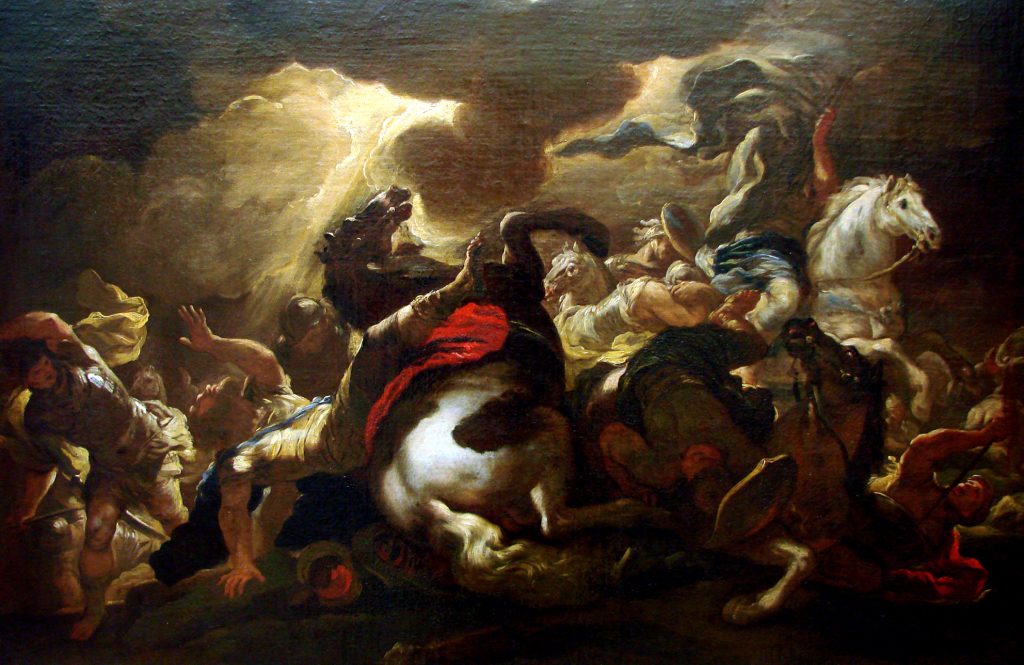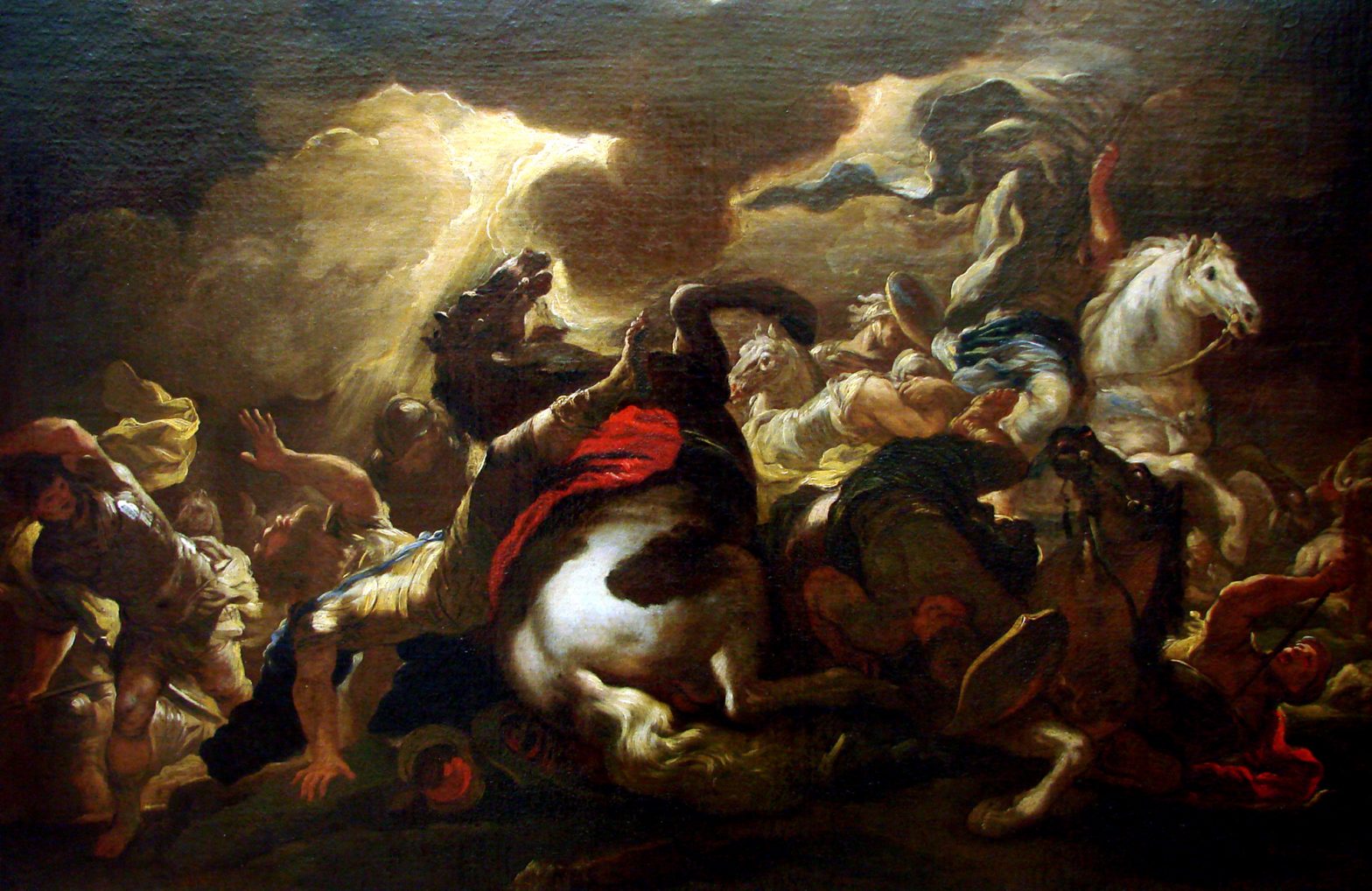
Three accounts tell of Paul’s Damascus Road experience: Acts 9:3-19; Acts 22:6-21; Acts 26:13-23 . The variations in details are accounted for by recognizing that each story is told to a different audience on a different occasion.
Paul was traveling to Damascus to arrest Jewish people who had accepted Jesus as the Messiah. This was legally possible since city governments were known to permit the Jewish sector of the city a reasonable degree of self-government. This was a long journey of about 140 miles, would take at least a week using donkeys or mules to ride and carry provisions.
As Paul neared Damascus, a startling light forced him to the ground. The voice asked: “why are you persecuting me?” and identified the speaker as Jesus—the very one whom Stephen had seen at the right hand of God when Paul witnessed Stephen’s stoning. Paul was struck blind and was led into the city. Ananias met Paul and told him that he had been chosen by God as a messenger for the Gentiles ( Acts 9:17 ). After Paul received his sight, like other believers before him, he was baptized.
In this conversion experience, Paul accepted the claims of Jesus and the church, the very thing he was seeking to destroy. Jesus was truly the Messiah and took priority over the Temple and the law. The experience was also Paul’s call to carry the gospel to the Gentile world ( Acts 9:15; Acts 22:21 ).
Both his conversion and call are reflected in Paul’s letters. He wrote that Jesus had appeared to him ( 1 Corinthians 15:8-10; 1 Corinthians 9:1 ); the gospel Paul preached had come by revelation ( Galatians 1:12); he had been called by God ( Galatians 1:1; Ephesians 3:2-12 ).
His conversion brought a complete change in the inner controlling power of his life. It was like dying and receiving a new life ( Galatians 2:20 ) or being created anew ( 2 Corinthians 5:17-20 ). This experience of radical change and call to the Gentiles provided the motivation to travel throughout the Roman world.
A sudden surrender rather than a sudden conversion
We must try as far as we can to enter into Paul’s mind. When we do, we will see that this is not a sudden conversion but a sudden surrender. Something about Stephen lingered in Paul’s mind and would not be banished. How could a bad man die like that? In order to still his insistent doubt Paul plunged into the most violent action possible. First he persecuted the Christians in Jerusalem. This only made matters worse because once again he had to ask himself what secret these simple people had which made them face peril and suffering and loss serene and unafraid. So then, still driving himself on, he went to the Sanhedrin.
The writ of the Sanhedrin ran wherever there were Jews. Paul had heard that certain of the Christians had escaped to Damascus and he asked for letters of credit that he might go to Damascus and extradite them. The journey only made matters worse. It was about 140 miles from Jerusalem to Damascus. The journey would be made on foot and would take about a week. Paul’s only companions were the officers of the Sanhedrin, a kind of police force. Because he was a Pharisee, he could have nothing to do with them; so he walked alone; and as he walked he thought, because there was nothing else to do.
The way went through Galilee, and Galilee brought Jesus even more vividly to Paul’s mind. The tension in his inner being tightened. So he came near Damascus, one of the oldest cities in the world. Just before Damascus the road climbed Mount Hermon and below lay Damascus, a lovely white city in a green plain, “a handful of pearls in a goblet of emerald.” That region had this characteristic phenomenon that when the hot air of the plain met the cold air of the mountain range, violent electrical storms resulted. Just at that moment came such a lightning storm and out of the storm Christ spoke to Paul. In that moment the long battle was over and Paul surrendered to Christ.
So into Damascus he went a changed man. And how changed! He who had intended to enter Damascus like an avenging fury was led by the hand, blind and helpless.
There is all of Christianity in what the Risen Christ said to Paul, “Go into the city, and you will be told what to do.” Up to this moment Paul had been doing what he liked, what he thought best, what his will dictated. From this time forward he would be told what to do. The Christian is a man who has ceased to do what he wants to do and who has begun to do what Christ wants him to do. [2]
